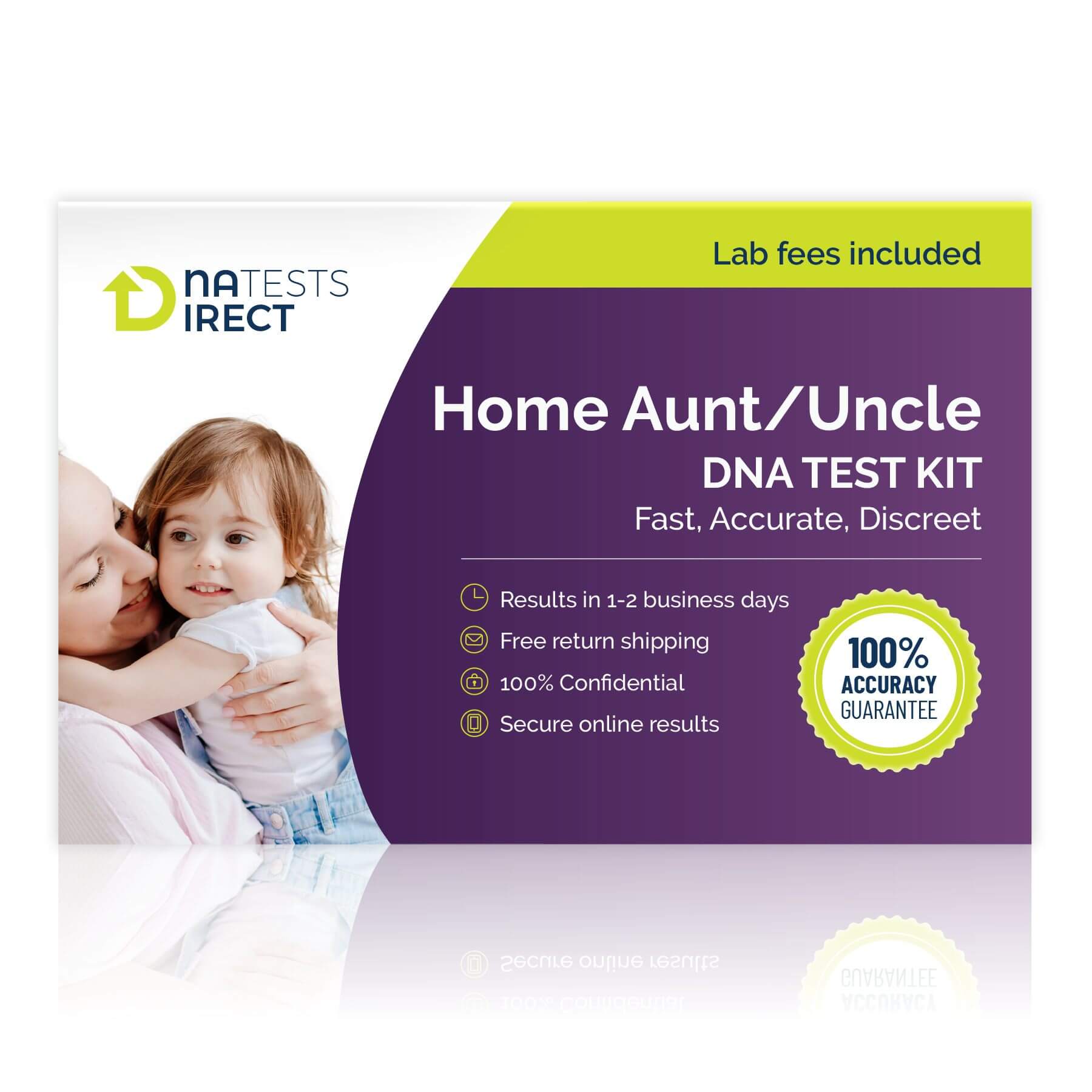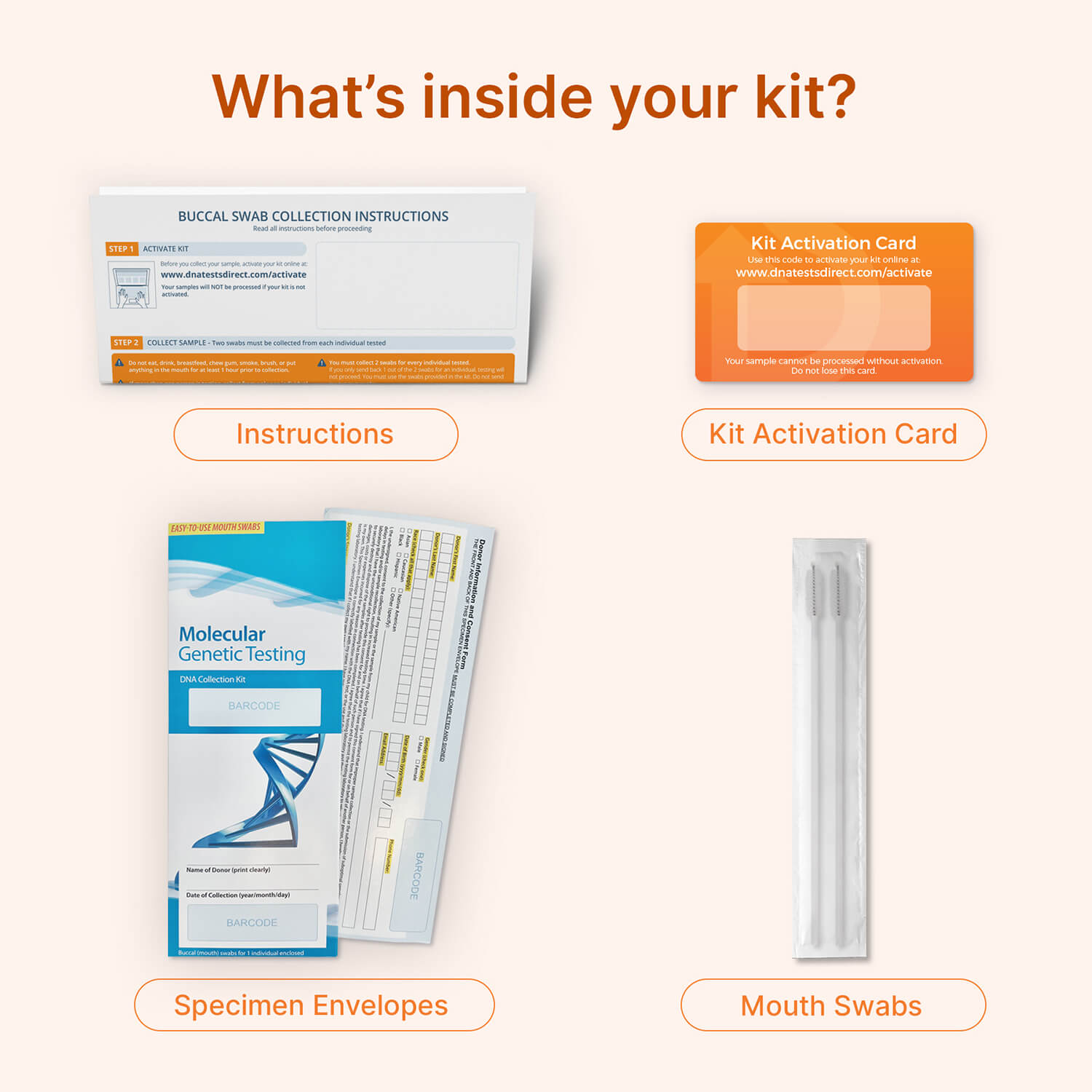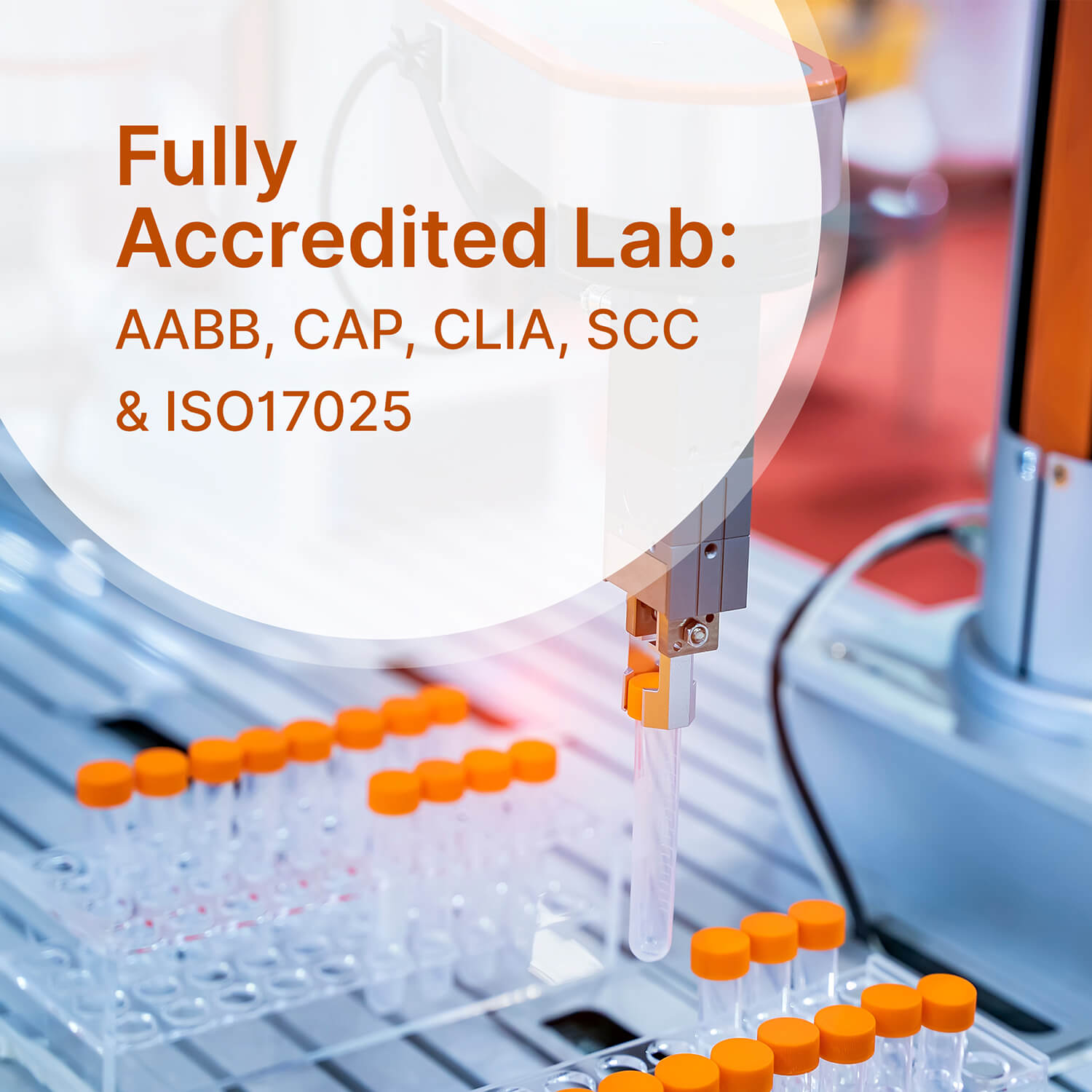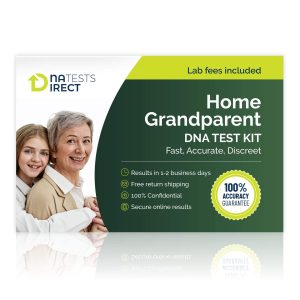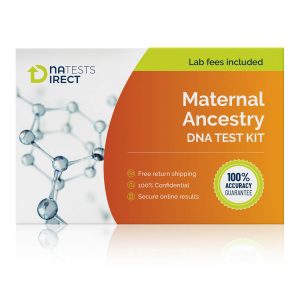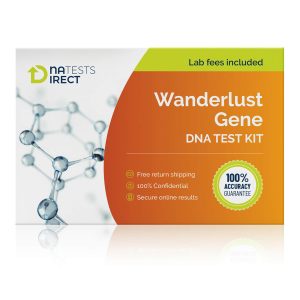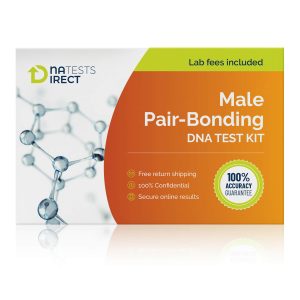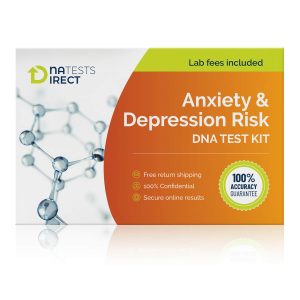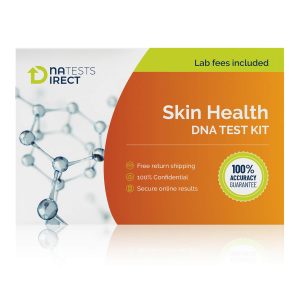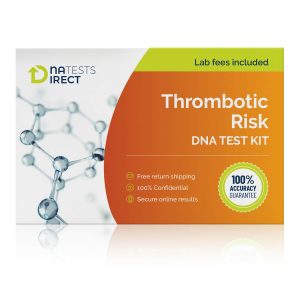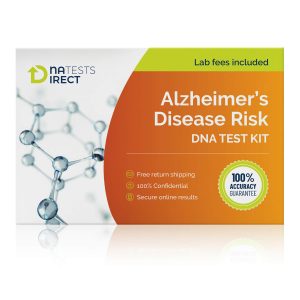Need Results for Legal Proceedings?
Standard at-home Sibling Test kits generally cannot be used for court proceedings or other official purposes. For court-admissible results accepted by Canadian courts and government agencies (e.g., IRCC), choose our Legal DNA .
How is a Legal DNA different?
Legal DNA tests follow a strict chain-of-custody process that private, at-home kits cannot provide:
- Verification of government-issued photo ID
- Submission of passport-style photos
- Fingerprinting at the time of sample collection
- Witnessed specimen collection by an impartial third-party witness.
DNA Aunt/Uncle Test
- Results in 1-2 business days
- 100% accuracy
- 2x Testing Guarantee
- All nclusive, no additional charges
- Proudly 100% Canadian
DNA Aunt/Uncle Testing
Uncover important family connections with the DNA Tests Direct At-Home DNA Aunt/Uncle Test. This specialized DNA test determines the likelihood that an alleged aunt or uncle is the biological relative of a niece or nephew. When a parent is unavailable for testing, this avuncular test provides valuable insights into family relationships using advanced genetic analysis. Experience the ease and privacy of at-home testing with our simple-to-use mouth swab collection kit.
Important Note: The DNA Aunt/Uncle Test provides probability-based results rather than definitive answers. For optimal accuracy in confirming biological relationships, we recommend choosing our paternity or maternity tests whenever possible, as these provide stronger statistical evidence.
How the DNA Aunt/Uncle Test Works

Order your DNA Kit
Place your order online, and we’ll send you a DNA test kit with everything you need to collect your samples.
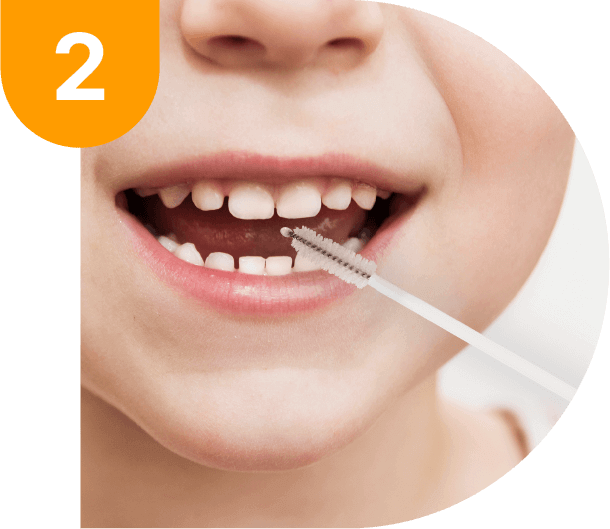
Collect your Samples
Follow the detailed, step-by-step instructions to collect DNA samples using the provided mouth swabs.
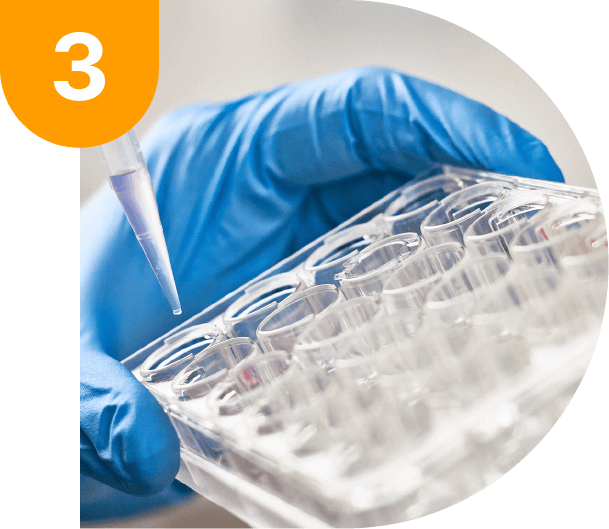
Lab Analysis
Use the provided return envelope to mail your DNA samples to our Canadian laboratory for analysis.
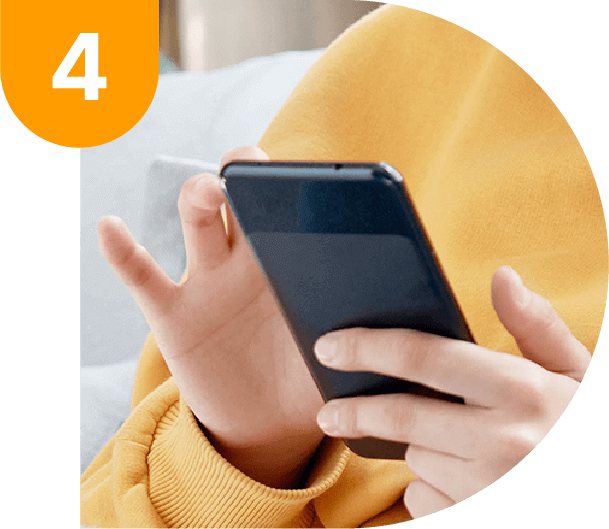
Receive Results
Download your DNA results from your online account within 1-2 business days of sample receipt at the lab.
Establish Avuncular Relationships with Confidence.
DNA Tests Direct is committed to providing accurate, private, and reliable DNA testing services for families across Canada. Here’s what sets our aunt/uncle DNA test apart:
- Accredited Canadian Laboratory: All testing is performed exclusively within Canada, ensuring your DNA samples and sensitive genetic information are protected by Canadian privacy laws and never leave the country.
- Fast and Secure Results: Receive your confidential results through our secure online portal in just 1-2 business days from when our Canadian lab receives your samples.
- Comprehensive Analysis: Our laboratory analyzes up to 27 genetic markers to deliver the most accurate statistical assessment of your potential avuncular relationship.
- Dual-Process Testing: Every test undergoes our dual-process analysis, meaning your samples are independently tested twice to ensure maximum accuracy.
Understanding Your DNA Aunt/Uncle Test Results
Your DNA Tests Direct Aunt/Uncle Test report will provide a Combined Kinship Index (or Likelihood Ratio). This number represents the statistical likelihood that the tested individuals share a biological avuncular relationship (aunt/uncle to niece/nephew) compared to being unrelated or related in a different way.
Interpreting these results requires understanding their probabilistic nature:
- A higher Kinship Index (significantly above 1.0) suggests a greater likelihood that the individuals share the tested avuncular relationship. The further the index is above 1.0, the stronger this evidence.
- A Kinship Index close to 1.0 may be inconclusive. This means the genetic evidence isn’t strong enough to definitively confirm or refute the avuncular relationship based on the tested individuals alone.
- A lower Kinship Index (significantly below 1.0) suggests it is less likely that the individuals share the tested avuncular relationship.
For more conclusive results, especially if the initial index is ambiguous, testing the known parent who is the sibling of the alleged aunt/uncle (if available) is highly recommended. This provides a direct genetic link and can greatly clarify the findings. Our Canadian-based client support team is available to discuss your results and help you understand the report.
Why Choose DNA Tests Direct?
When you choose DNA Tests Direct for avuncular relationship testing, you’re selecting reliability, confidentiality, and Canadian expertise. We understand that exploring family connections often involves sensitive circumstances, and we’re here to provide clear results with compassionate support.
As a 100% Canadian-owned and operated company, all DNA analysis is performed in our accredited Canadian laboratory, ensuring your samples never leave Canada. Our commitment to the highest laboratory standards and our friendly, knowledgeable customer service team make us the preferred choice for relationship testing across Canada.
Need a DNA Aunt/Uncle Test for Legal Reasons in Canada?
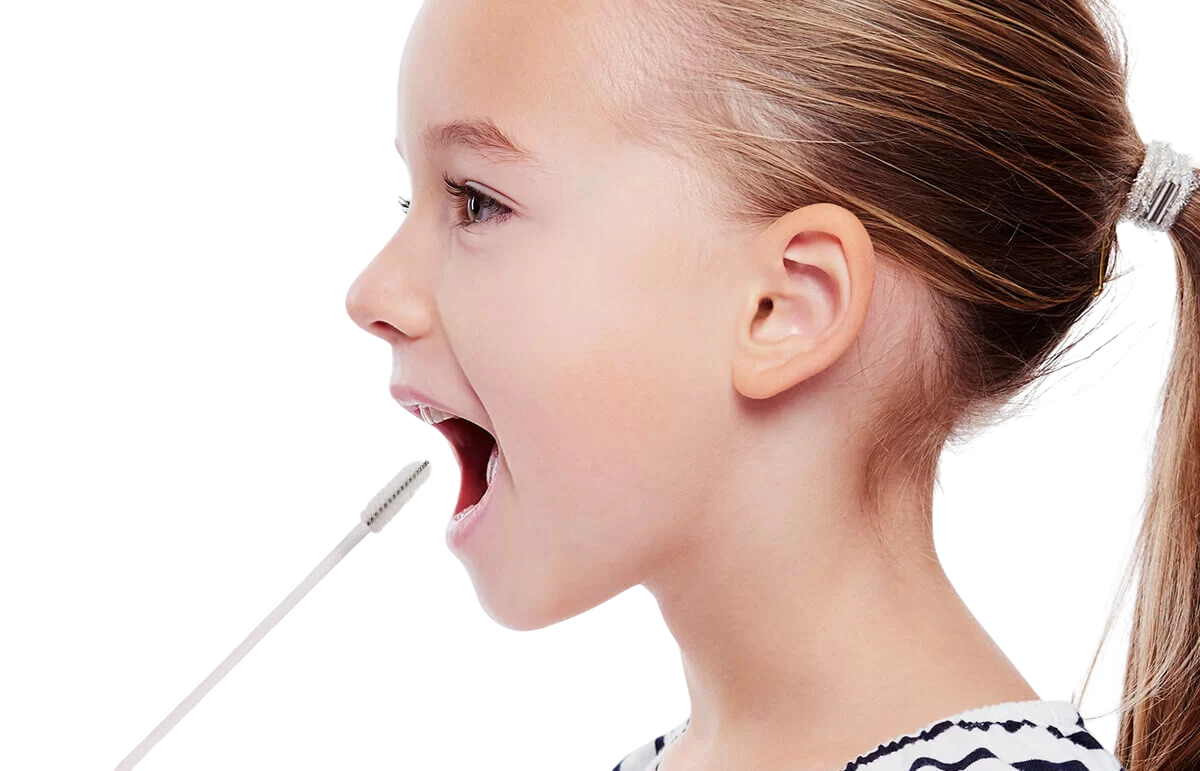
Painless Mouth Swabs
Secure Online Results
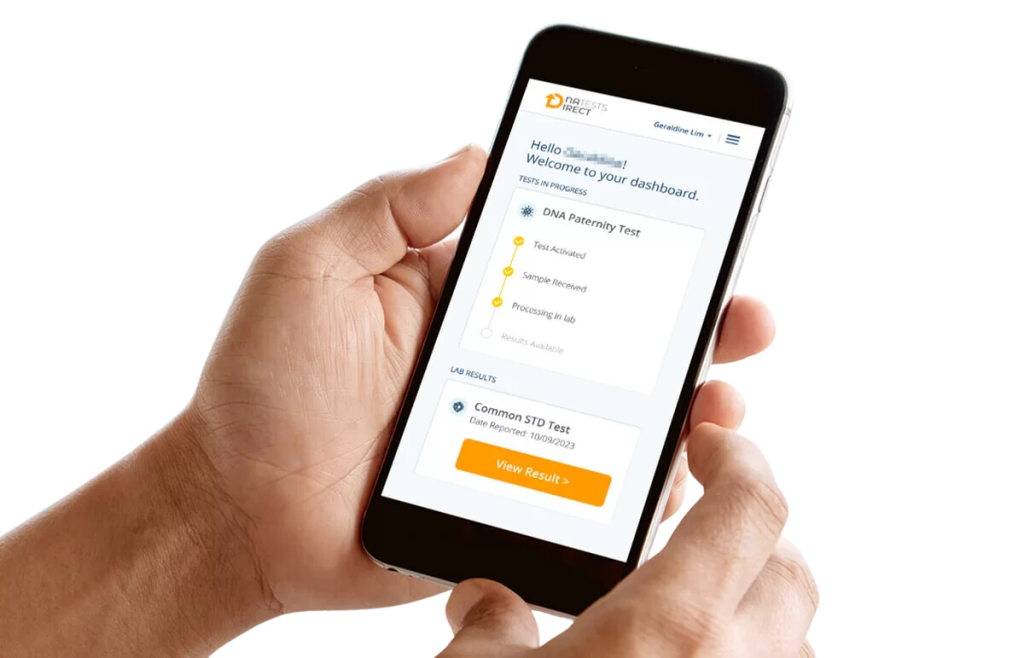
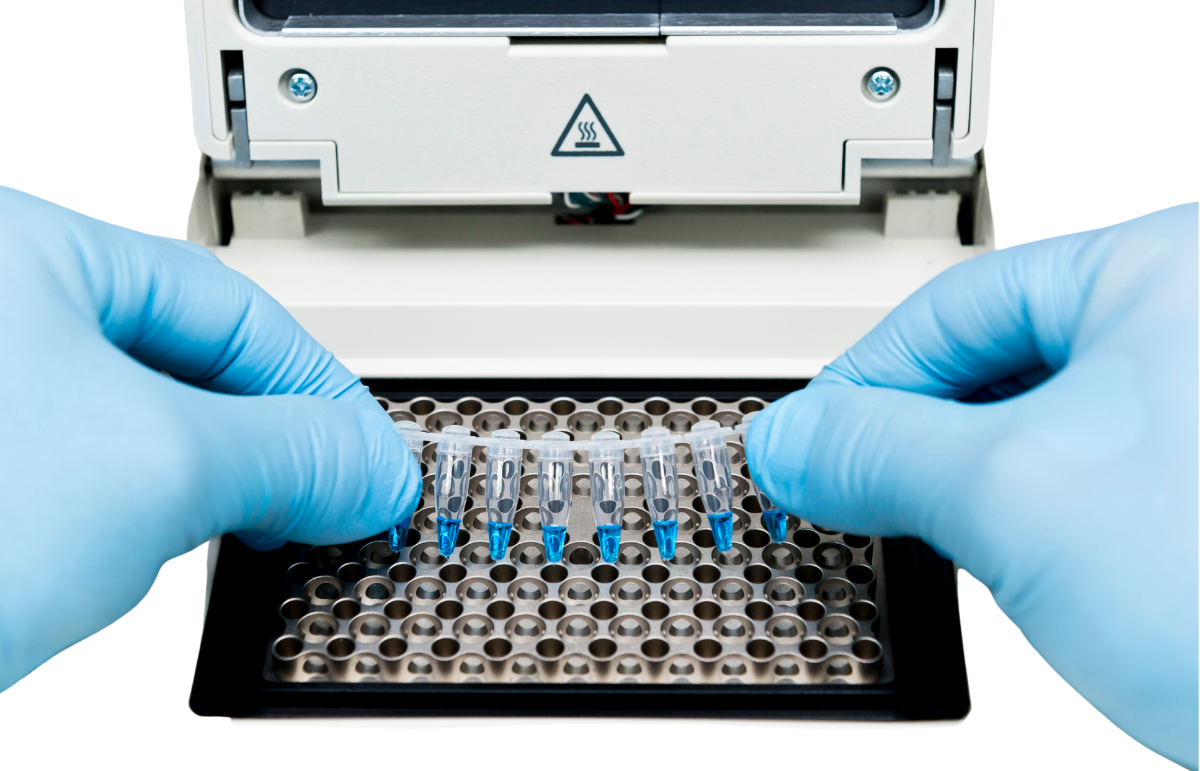
Trusted Canadian Laboratory
Frequently Asked Questions
What is a DNA Aunt/Uncle Test and when would I need one?
A DNA Aunt/Uncle Test (also called an avuncular test) determines the likelihood that an alleged aunt or uncle is biologically related to their niece or nephew. This test is particularly valuable for Canadians when a parent is unavailable for testing due to death, absence, or unwillingness to participate. Common scenarios include establishing biological relationships for family reunification, inheritance matters, immigration cases, or simply confirming biological connections within a family when direct parent testing isn’t possible.
How accurate is your DNA Aunt/Uncle Test?
Our DNA Aunt/Uncle Test provides a statistical likelihood rather than the definitive results of a paternity test. The test analyzes up to 27 genetic markers through dual-process testing in our accredited Canadian laboratory. Because aunts/uncles share approximately 25% of their DNA with nieces/nephews, results are presented as a Combined Kinship Index showing how likely the avuncular relationship is compared to no relationship. For strongest results, we recommend including the known parent (who is the sibling of the alleged aunt/uncle) when possible.
Can you ship the DNA Aunt/Uncle Test kit to multiple addresses?
If test participants live in different cities or countries, we can split the DNA test kit and ship components to separate addresses. Each kit part is individually barcoded for secure tracking, and testing begins once all samples reach our laboratory.
To request a split kit, include the following in the “Additional Information” section at checkout:
“Please send Person A’s kit to [Name, Address] and Person B’s kit to [Name, Address].”
Note: Additional shipping fees apply for multi-address orders.
Can I use these results for legal purposes?
For legal matters such as court proceedings, child custody, support cases, or inheritance claims, you will need to order the Legal DNA Test. This test requires a chain of custody procedure to ensure the results are admissible in court. The process includes having DNA samples collected by an impartial third party, proper identification of participants, and samples being directly sent to the testing laboratory.
Does the DNA test kit expire?
No, the kit has no expiration date and can be stored indefinitely before collecting your sample. However, once the sample is collected, we recommend returning it to the lab within three months for optimal testing.
How to read your DNA Aunt/Uncle Test results?
Your results will show two numbers (alleles) that represent the repeats you inherited from each parent at each STR. These alleles may be identical or different at each marker. The allele numbers from the alleged aunt/uncle and the child are compared, and a statistical analysis is performed to determine the kinship between the two individuals, resulting in a “kinship index.”
- Biologically related aunt/uncle and nephew/niece pairs typically have a kinship index value greater than 1.0.
- The higher the kinship index value over 1.0, the stronger the likelihood of a biological relationship.
- Individuals who are not biologically related are expected to have a kinship index value less than 1.0.
Is the collection process difficult?
The collection process is extremely simple and painless. Your kit includes easy-to-use cheek swabs (similar to Q-tips) that you gently rub against the inside of the cheek for about 30 seconds. This collects enough DNA for testing without any blood or needles. The process works for everyone, including infants. Our kit includes clear instructions, and our customer service team is available if you need assistance.
Shop Related Tests
CA$195
Discover the probability of a biological relationship between potential grandparents and their grandchild.
CA$196
Ever wondered where your maternal ancestors came from? This test can tell you! Mitochondrial DNA is passed from mother to child, providing an ideal way to trace maternal lineages. (Note: Both males and females can take this test.)
CA$129
Discover if you have the “wanderlust gene” with our at-home DNA test, which examines the DRD4 gene to determine if you have a variant associated with a love of travel and adventure.
CA$149
Is it your genes that prevent you from making that long-term commitment to your partner? Find out if your fear of commitment is due to your genes.
CA$149
Do your genes play a role in how you feel? This test reveals how your DNA might affect your mood, stress levels, and risk for anxiety and depression.
CA$249
Your skin’s appearance is influenced by your diet, the environment, and your genes. Take this test so you can personalize your skincare routine to your genetic makeup.
CA$195
Blood clots are painful and can be life-threatening. Do you carry genetic variants that increase the likelihood of developing blood clots?
CA$195
Discover if you are genetically predisposed to late-onset Alzheimer’s with this simple, at-home DNA test. This test detects whether you carry the APOE4 variant, a key genetic risk factor linked to an increased risk of Alzheimer’s disease.

